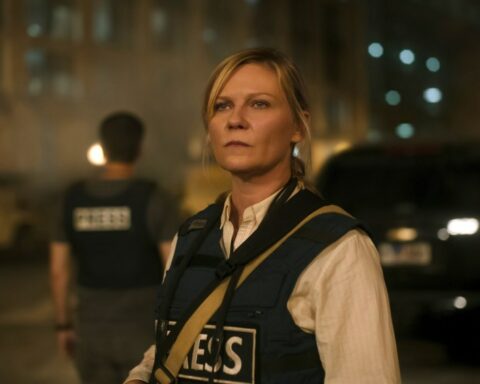
As strike action is set to get underway in Los Angeles and New York, the Writers’ Guild of Great Britain has officially instructed its members to halt work on projects within the jurisdiction of the Writers’ Guild of America.
A statement released by the WGGB on Tuesday afternoon local time reads as follows: “We understand that these are difficult times and that many writers are in need of work but we are advising our members not to work on projects in the jurisdiction of the WGA for the duration of the strike following a motion of solidarity passed by our lay governing body, our Executive Council and in line with our affiliation agreement with the International Affiliation of Writers Guilds, of which we are a member.”
The WGGB said in April that it was ready to stand “shoulder to shoulder” with its U.S. counterpart if a strike goes ahead, and by the looks of it, the org is staying true to its word — even though it may be limited in what it can realistically achieve.
Unlike in America, U.K. writers aren’t required to be part of the WGGB in order to work in the field. As such, screenwriters who aren’t members of the WGGB will still be free to work despite WGA action. Nonetheless, the WGGB is making it clear that this will be strongly discouraged. As part of its official statement, the trade union referenced Rule 13 of the WGA strike rules which pertain to non-members.
“The Guild does not have the authority to discipline non-members for strikebreaking or scab writing. However, the Guild can and will bar that writer from future Guild membership. This policy has been strictly enforced in the past and has resulted in convincing many would be strikebreakers to refrain from harming the Guild and its members during a strike. Therefore, it is important for members to report to the Guild the name of any non-member whom you believe has performed writing services for a struck company and as much information as possible about the non-member’s services.”
In the U.K., the situation for writers is different in that the writers’ room model is not as common and deals struck with broadcasters like the BBC and ITV have secured strong minimum terms for scribes. However, in the age of streaming, discussions about residuals are still murky, even for British talent, which makes the U.S. conflict far more relatable than in years’ past.
So, what exactly does this all mean for U.K.-based writers who are members of both the WGGB and the WGA?
Effectively, writers who are U.K. residents with contracts under a WGGB collective agreement (for example, with the BBC or ITV) can continue to work. However, if they’re a U.K. resident and their contract is with a U.S. company under WGA terms, then that work will fall under strike action.
Writers who are U.K. residents with a contract with a U.S. company under terms outside of the WGGB or the WGA are advised to contact both orgs for more information.
Lisa Holdsworth, chair of the WGGB, said: “We know that strike action is a last resort and one that requires individual sacrifice. The resounding majority of WGA members who voted for this action have shown the collective strength of their feeling and their resolve to stand firm on issues that affect writers the world over.
“I know that my fellow WGGB members will share my message of solidarity to our colleagues overseas, and I know many will also have understandable concerns about the impact on their work here, at a time when the traditional boundaries around genre and jurisdiction fall away, and when writers here face their own challenges. We’re your union – we’re here to support and advise you, and now is no different – so don’t hesitate to reach out to us.”
The WGA called a strike on Monday night after failing to reach an agreement with the Alliance of Motion Picture and Television Producers. Picketing will begin on Tuesday outside of Netflix, Amazon, Disney, Warner Bros., and the other major studios in Los Angeles.
One of the key issues in the WGA’s contract renewal with the AMPTP is career sustainability for writers working in a markedly changed landscape. Writers at almost every level now work longer hours at lower wage rates. They’re pushing to get more money on the front-end of dealmaking because the backend of profit participation, syndication sales and international licensing is disappearing in the age of streaming.
On the other side of the table, the leaders of studios, networks and streamers are trying to keep businesses afloat in a challenging economic climate where they’re more accountable for keeping profits flowing.
In a statement, the AMPTP said on Monday that the major sticking points are the guild’s proposal for a TV staffing minimum and a minimum number of weeks of guaranteed work on a TV season. The WGA outlined the major differences between the two sides, which include the AMPTP’s refusal to consider a streaming residual that would pay more for hit shows.







